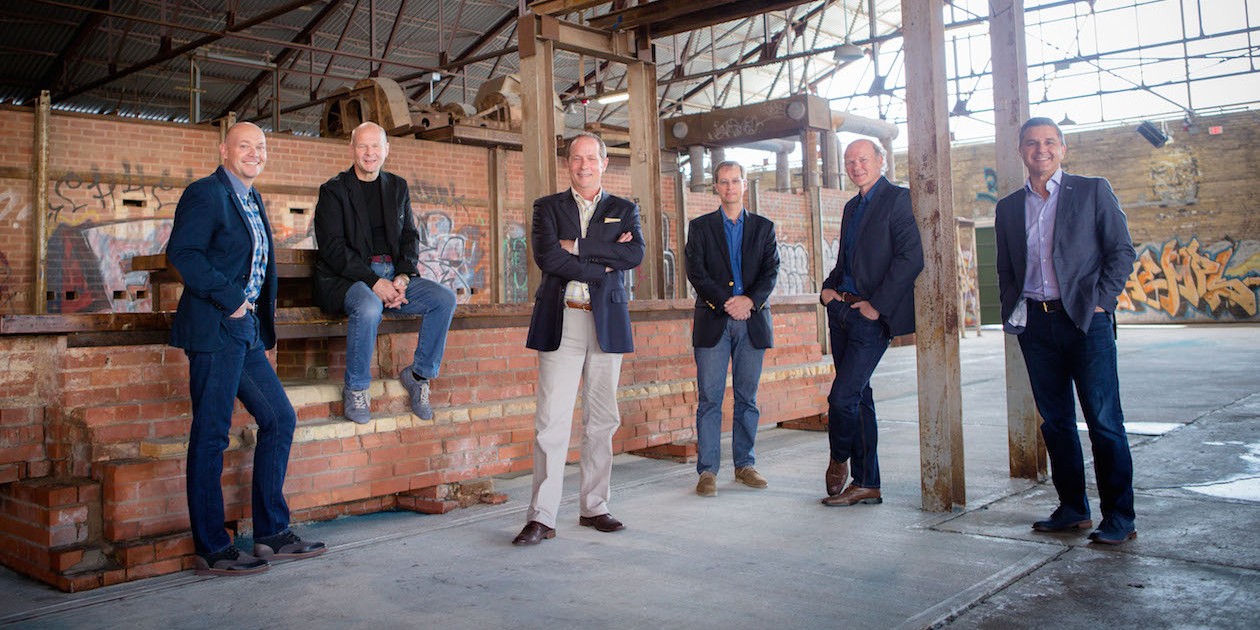 It was while sitting and watching the waves roll in at Table Rock Beach, an idyllic spot in southern California, that Jeffrey Elliott and his longtime business partner Joseph Arcuri came up with the name for their next media venture.
It was while sitting and watching the waves roll in at Table Rock Beach, an idyllic spot in southern California, that Jeffrey Elliott and his longtime business partner Joseph Arcuri came up with the name for their next media venture.
During a series of meetings with Hollywood studios that week, lawyers advised Elliott and Arcuri that “Appcast” – the name originally conceived for their proposed suite of subscription-based digital channels – was not feasible.
A subsequent trip to Table Rock Beach to determine their next move provided the inspiration for their new digital start-up, TableRock Media. For chief operating officer Arcuri, it is a name that works on multiple levels: A table is a place where people gather, while the word “rock” represents values like stability and durability.
“It all just blended together,” said Arcuri, who was formerly chief financial officer at digital start-up GlassBox Television (acquired by Blue Ant Media in 2012) and served as president of AOL Canada between 2007 and 2010.
He comprises a seasoned senior management team that also includes CEO Elliott (who was founder and CEO of GlassBox) and Whistlestop Productions founder David Hatch, who serves as the company’s chief creative officer.
The company’s logo is a thumbprint, which is intended to convey its commitment to “personalized” content. The brand identity was developed in association with Grant Ivens of Toronto-based strategic brand agency Say What, a longtime associate of Elliott’s who helped develop the channel branding for services including Bite TV and Oasis HDTV.
In development for the past 18 months, TableRock Media reflects contemporary viewing habits that are less reliant on traditional TV in favour of digital offerings like Netflix and YouTube-based multi-channel networks (MCNs).
“I think we’re all in agreement that we’ve reached a tipping point where technology, broadband and consumer adoption have mixed into this wonderful little spot, and I think Netflix has helped do that,” said Elliott.
He likens the current market to when specialty television first launched in the early 1980s, where 24-hour sports and music channels like TSN and MuchMusic were oddities given slim chances of survival.
“The whole construct was whether people would pay for content, and here we are in 2015 and [Netflix has proven] that people will pay for really good curated content,” he said.
Subsequent market analysis found a considerable consumer appetite for what he described as “hyper-niche” areas like guitars, motorcycles and aviation, which will form TableRock Media’s first three channels. All are $1 billion industries with devout customer bases, said Elliott.
“The vast majority of people have hobbies or interests they’re exceptionally passionate about, and that’s really getting to the essence of what we’re doing,” said Elliott.
The TableRock channels will be available via both Apple and Android devices as well as set-top boxes, game consoles and other platforms when the company launches next year. He said TableRock is in the “very preliminary” stages of obtaining distribution deals.
The digital-only approach, meanwhile, enables TableRock to avoid the twin headaches of securing regulatory approval and carriage with BDUs, said Elliott. “You remove that giant regulatory headache and a giant technology infrastructure, which is grossly expensive, and you have a relationship directly with your consumers,” he said.
Elliott said the company is being “very conservative” in its subscriber projections. “We don’t want to predict any hockey stick growth,” he said. “It’s not the first company that we’ve built and we all have experiences projecting audiences to investors. We wanted to take a much more prudent approach.”
Elliott stressed the new venture is “not at all” an MCN, noting that TableRock will produce at least 80% of its content while establishing relationships with larger independent online creators. Content will be a blend of original documentaries, films and hosted series, while the company will also provide subscribers with access to exclusive events, engagement via social media and community forums.
TableRock executives have already been in discussions with advertisers and manufacturers. Elliott said the three channels will not feature pre-roll advertising, but will subtly integrate advertiser messages into relevant content.
“What works exceptionally well is when you have a group of people who are 100% your target market,” he said. “Honda wants to sell motorcycles to people who are interested in motorcycles, and we plan on being able to do that.
“We know that people spend money on motorcycles, we know that they spend money on clothing, and hotels, and wine and food when they go for their meets,” he said. “We are going to be able to approach marketers and advertisers with that proposition.”
Arcuri said the TableRock model provides advertisers with an opportunity to monetize the vast social communities they have amassed in recent years. “We are a marketing company and a content company; we are not a technology company,” he said. “When you overlay these passion points it scales incredibly quickly.”
TableRock has also assembled a high-profile board of directors chaired by Ken Murphy, co-founder of High Fidelity – also acquired by Blue Ant Media – and the former president and general manager of Discovery Channel Canada. Directors include Henry Eaton, president of Eaton Ventures, and GestureTek founder Francis MacDougall.











